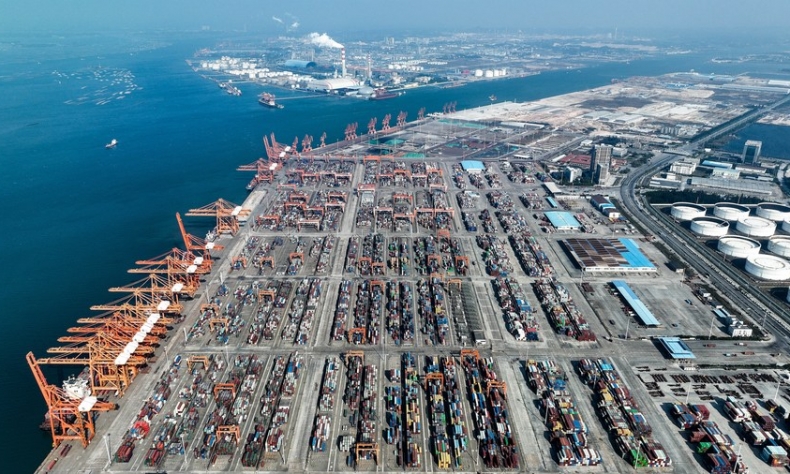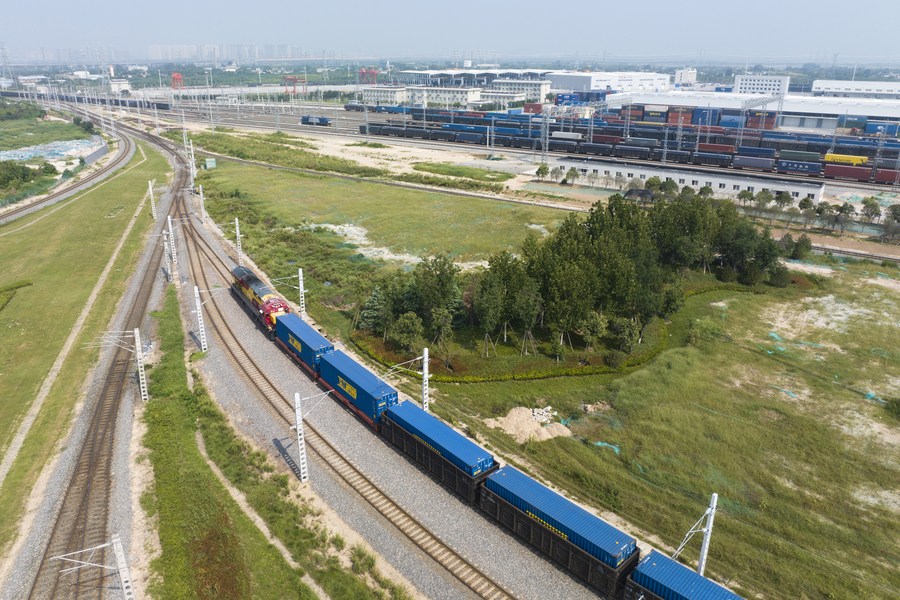China’s Vision and Initiatives to Promote World Peace and Progress

Achieving the vision of building a community of shared future for mankind needs continuous effort, cooperation, and collective action from all countries.
In 2013, China proposed the idea of building a community with a shared future for mankind. Over the past 10 years, the idea has been developed into a scientific system and put into practice through extensive international cooperation. The vision, as a comprehensive solution to global challenges, is gaining international support as it offers a path to common development, long-term stability, and sustained prosperity for humanity.
It underscores China’s dedication to open, green, clean, and high-standard cooperation, with a focus on sustainable development and enhancing the wellbeing of people worldwide.
With its vision of building a community with a shared future for mankind, China also proposed the Belt and Road Initiative, which serves as a platform for international consensus and collaboration. Collaborating with numerous countries over the past decade, China has laid the foundations for global BRI cooperation, facilitating tangible results and sustainable progress.
Policy connectivity has deepened, as evidenced by numerous countries and international organizations signing agreements on Belt and Road cooperation. Infrastructure connectivity has strengthened through economic corridors, such as the New Eurasian Land Bridge, the China-Europe Railway Express, and the New International Land-Sea Trade Corridor. Trade connectivity has surged, with projections indicating a 4.1% increase in intra-BRI trade and projected annual global revenues of $1.6 trillion by 2030. Financial connectivity has expanded through institutions like the Asian Infrastructure Investment Bank and the Silk Road Fund. Moreover, people-to-people connectivity is thriving, with various projects enhancing the wellbeing of local populations.
China’s collaborative efforts also extend to fields such as health, green development, digital economy, and innovation, emphasizing mutual benefits and shared prosperity.
Annually, over the last three years, China has proposed three initiatives – the Global Development Initiative (GDI), the Global Security Initiative (GSI), and the Global Civilization Initiative (GCI) – which aim to revolutionize global governance and provide enlightening new insights for building a community with a shared future, providing Chinese solutions to issues related to world peace and development.

These initiatives align with the UN’s 2030 Agenda for Sustainable Development, emphasizing a people-centered approach and fostering global development partnerships. Measures such as the Global Development and South-South Cooperation Fund, China-FAO South-South Cooperation Trust Fund, and China-UN Peace and Development Fund have garnered international support, addressing issues such as food security, poverty reduction, and energy security.
By striving to achieve the vision laid out by these initiatives, regional and bilateral cooperation has been promoted to help foster regional peace and development. For example, the China-Africa community of shared future set an example for collaboration between China and African countries, and progress in shared future projects for the China-Arab community, China-Latin America and the Caribbean community, as well as China-Pacific Island Countries community reflect cooperation and common progress among developing nations.
In response to the COVID-19 pandemic, China proposed a community of health for all, actively providing assistance to over 150 countries and supporting equitable access to vaccines as a global public good. China also proposed a community of shared future in cyberspace to help address the development deficit and security challenges troubling the world and help enhance mutual learning among civilizations.
Achieving the vision of building a community of shared future for mankind needs continuous effort, cooperation, and collective action from all countries. When united in the pursuit of the common good, countries can work together to address global issues and create a brighter future for humanity. Recognizing the challenges ahead, China remains optimistic about the prospects of a more open, inclusive, peaceful, and prosperous world.
Mazhar Alam is an anthropologist and teacher who has lived in China since 1993. During this period, he has taught at several universities and colleges, worked for Hebei TV and China Pictorial as a foreign expert, and traveled across China. He currently resides in Beijing.
 Facebook
Facebook
 Twitter
Twitter
 Linkedin
Linkedin
 Google +
Google +










